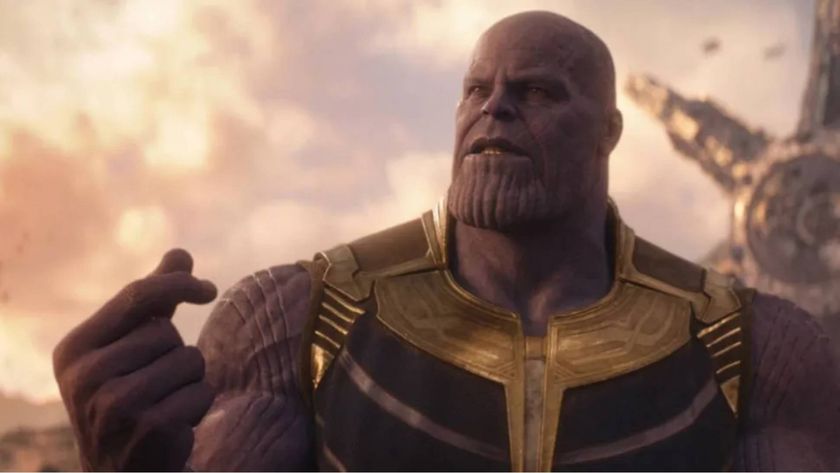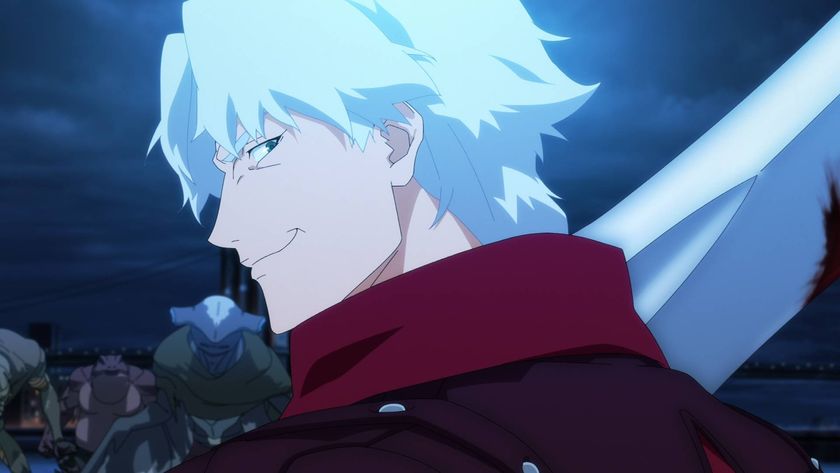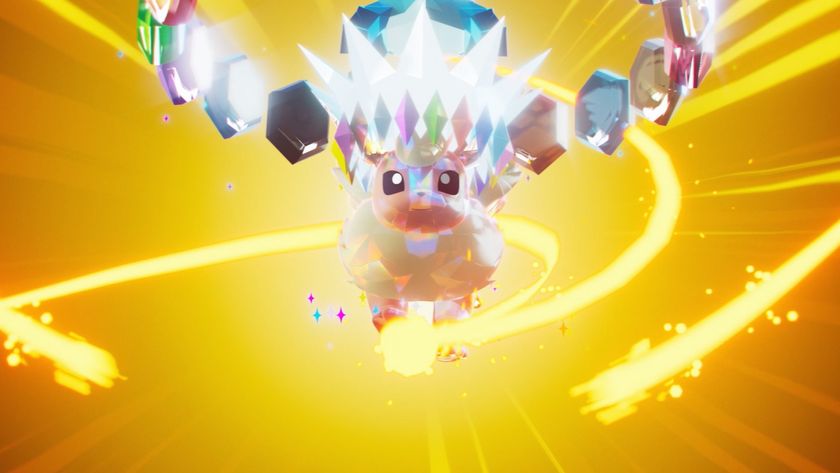Heavens Shadow: Authors Interview
None
Two creative minds behind such things as The Dark Knight , Blade , The Twilight Zone and The Outer Limits combine forces for a new series of SF thriller novels
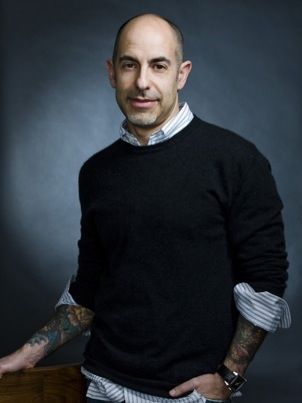
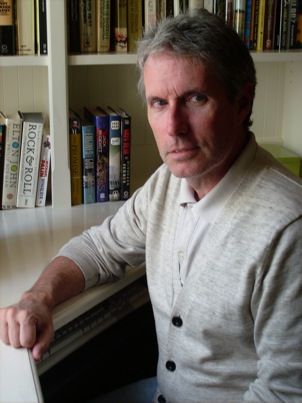
Heaven’s Shadow begins with the discovery of an object of unknown origin headed toward Earth. Speculation as to what it might be runs high, and leads to an international competition to be the first to land on it, to claim both the prestige and whatever other benefits there might be. Two rival teams of astronauts begin a dangerous race – but what they find when they reach their goal will turn out to be unlike anything they could have imagined. What they have landed on is no asteroid but a spacecraft from a civilisation that has travelled tens of thousands of years to reach Earth.
The authors behind this first book in a new SF thriller series are screenwriter David S Goyer ( Batman Begins , The Dark Knight , Flash Forward , Blade ) and TV producer Michael Cassutt ( The Outer Limits , Eerie, Indiana , Beverly Hills, 90210 and The Twilight Zone ). SFX managed to track them down for an email interview… which, we’ll be honest, is why the answers come from some Goysutt gestalt personality übermind. The film rights have already been sold to Warner Bros in a seven-figure deal.
Heaven’s Shadow is published by Tor on Friday 15 July
“We met in the mid-1990s through a mutual friend, Michael Engelberg, producer of the feature film The Puppet Masters . (David was one of the writers of the movie.) We stayed in touch over the years, especially as it turned out that we had a number of other mutual contacts, such as the director Alex Proyas. In late 2006, David approached Michael for help developing a cool SF idea he’d had for years….”
How did you divide labour on the book?
“We work together, in the same office, developing the story in great detail (laying out each scene) and passing the outline document back and forth. Michael then works on the first draft, with David editing and revising.”
Sign up to the SFX Newsletter
Get sneak previews, exclusive competitions and details of special events each month!
What made you think this would work better as a novel than a movie/television show?
“Our model was 2001: A Space Odyssey , which Arthur C. Clarke and Stanley Kubrick developed as both a novel and screenplay. The development process was a little circuitous. We wrote a film treatment together. But then the writers’ strike hit and we were prevented from taking it out to market. Michael, with his background in books, suggested we convert the treatment into a book proposal, which we did. We sold it as a novel, finished the manuscript, then turned around and were able to sell the film rights to Warner Brothers. David will actually be writing the screenplay adaptation this summer.”
Is writing a novel a radically different discipline to TV/screenplays or other things you’ve done? Do you see it as a movie in your mind (thinking in scenes), or is the approach different?
“Novels allow the writer to enter a character’s point of view, suspend time, explore emotions.
“Another consideration with a screenplay is budget. With a novel, there is no budget. You can literally write the most expensive sequence in the history of mankind. With a film, even a big budget one, there are always going to be certain limitations.”
Michael’s written books about NASA and real-life space travel. Was it important that you got the science as accurate as possible? Did you do much research into Near-Earth Objects and the logistics behind assembling missions like the ones in the book.
“Yes, Michael has been following human space flight and solar system exploration for 30 years. We think our speculations about science and space engineering are plausible.
“It was important to David that the science be as grounded as possible. Aside from being a terrific storyteller, because Michael was steeped in the NASA culture he would bring a level of verisimilitude to the project that would have taken David on his own, years to research.”
The book’s set in the very near future. Why did you choose to set it then than centuries down the line?
“Here our model was Michael Crichton, who was able to tell interesting stories about future technology because he set his work as close to the present as possible. Besides, Heaven’s Shadow isn’t about the way some new technology or event has changed the world… it’s about first contact with that new element.
“(For that matter, we also followed HG Wells’ formula, which resulted in some of the greatest SF ever: change one thing.)
“We wanted the story to feel relatable. Some people have coined the phrase ‘science fact’ as a catch-all for more grounded science-fiction stories. While it’s a bit of a misnomer, it does seem to describe the kind of feeling we were going for. Star Wars and Jurassic Park are both science-fiction stories, but they work on audiences in slightly different ways. Crichton always tried to make his ideas seem plausible. James Cameron once referred to it as the ‘veneer of authenticity’.”
The book’s part of a trilogy. Do you see Heaven’s Shadow as the first act of a much bigger story?
“From our first discussions of David’s idea – what it would mean for the people involved, then for the world – it was obvious that it was rich enough for a three-part story.”
The book comes over very science fiction literate. Were there any authors in particular that inspired you?
“Between us, we’ve read all the Big Rock novels, from Wylie & Balmer’s When World’s Collide through Lucifer’s Hammer , Shiva Descending and many others. We’ve also read Arthur C Clarke’s rendezvous With Rama , Gregory Benford’s In The Ocean Of Night , as well as works by Greg Bear, John Varley and Larry Niven. Jack McDevitt is a favourite. We were also inspired by Allen Steele’s Coyote series of novels. David is also a fan of Robert Charles Wilson, particularly Spin .
“The other issue was trying to come up with a ‘first contact’ story that didn’t fall into the two oft-repeated plotlines of either an invasion or a test (in which the human race is given a test to determine if they are ready to join the ‘cosmic club’).”
A Russia/India/Brazil alliance seems an unusual choice for the countries teamed up on the rival mission. Was there any particular reason for that? Did you develop a “future history” for the years between now and the time of the book to explain how the world’s changed?
“Brazil has been a partner in the International Space Station; its energy reserves make it likely – or at least plausible – that it will play a larger role in future space programs. India is planning its own human space effort, and is already working with the Russians on hardware and designs. A lunar effort would be too expensive for any one of these nations, but not for all three working together.
“Currently, America is still the only super power. China and India are up-and-comers. We see the future of space travel – perhaps even the entire geopolitical landscape – as heading in a direction that involves constantly realigning coalitions.”

Dave is a TV and film journalist who specializes in the science fiction and fantasy genres. He's written books about film posters and post-apocalypses, alongside writing for SFX Magazine for many years.
